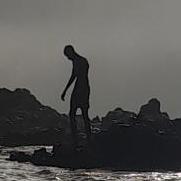The main business chambers of Nicaragua closed ranks this week to demand that President Daniel Ortega advance the elections as a way out of the deep political crisis that hits the Central American country, after eight months of protests calling for the end of the regime and a violent response by part of the former Sandinista guerrilla, who has already left 325 dead. The representatives of the private sector warned that if the current situation continues, the Nicaraguan economy - the poorest in Central America - could be headed for decline. The country has lost 750 million dollars in foreign investment, tourism reports losses for another 500 million dollars due to the drop in visits by international travelers and the productive sector saw its financing reduced by 450 million.
Added to this are more than 400,000 unemployed Nicaraguans, according to the independent analysis center Funides, and many others who have had to resort to the informal sector of the economy. They also stated that insecurity has increased in rural areas of the country, with the illegal occupation of thousands of hectares of private land, which has left at least 9,000 people unemployed and losses of more than 17 million dollars in a country where the GDP is less than 14,000 million.
In this context, the businessmen signed a letter sent to President Ortega in which they demand profound reforms to the electoral system, controlled by the Sandinista politician and his immediate surroundings. Also a preview of the general elections, scheduled for 2021. In addition, they demand the resumption of the so-called National Dialogue Table, mediated by the Church, to achieve an exit from the crisis. This was suspended because of Ortega's refusal to accept the conditions that had initially been agreed with the opposition Civic Alliance, an association without partisan affiliation that brings together various groups, including employers. The private sector also asks for "international guarantors" in this dialogue. Among the institutions that could act as independent observers, the Organization of American States (OAS), the European Union or the Central American System of Economic Integration (SICA) have been mentioned.
"We demand the cessation of the police state and respect the guarantees and constitutional rights of all Nicaraguans," reads the comprehensive report presented by the Higher Council of Private Enterprise (Cosep), which documents the consequences of the crisis policy on the national economy. "We demand that the State and its institutions guarantee the unrestricted exercise of the political rights of all citizens to concentrate, demonstrate and mobilize, and not only their supporters," demanded the businessmen, referring to the supporters of the Sandinista National Liberation Front (FSLN), who remain stationed every day in the main points of Managua, the capital.
The employers demanded that the government release the more than 500 detainees in the framework of the protests, so that Nicaragua may have, said the businessmen, a "Christmas without political prisoners." They also demanded the former Sandinista guerrilla to stop the harassment and harassment of journalists and independent media. "There should never be more repression and censorship of press freedom," they said.




![[N]audy](https://csblackdevil.com/forums/uploads/monthly_2020_06/lCGU8Xg.thumb.png.45679e2de49e686878288cdf7b53f6f4.png)

![ZeNe[L]2}{.](https://csblackdevil.com/forums/uploads/monthly_2018_12/fKtKgG9.thumb.png.3280e0b9205a80a426e1be6d7c44b7ad.thumb.png.1541755332eaf6a9e3d77107746f5fbc.png)
